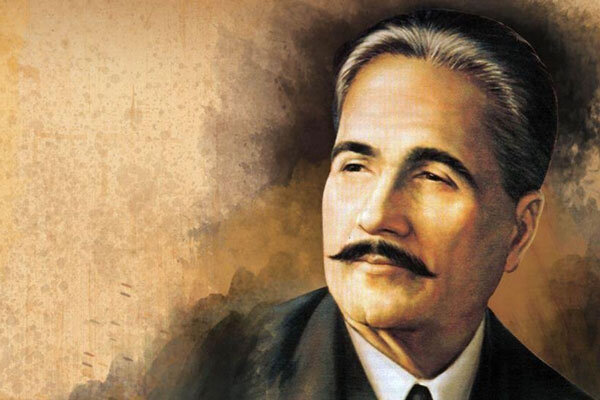Iqbal Lahori memorial held with Iranian, Pakistani scholars

TEHRAN- The Iqbal Lahori Memorial Conference, organized by the ECO Cultural Institute (ECI)and the International Affairs Department of the Art Bureau of the Islamic Ideology Dissemination Organization, was held on Thursday with the presence of distinguished Iranian and Pakistani scholars and poets in Tehran.
The event commenced with a speech by Saeed Lashgari, an Art Bureau official, who emphasized the significance of Iqbal Lahori’s personality and his cultural influence.
Lashgari highlighted Iqbal Lahori’s role as a cultural bridge between Iran and Pakistan. “He served as a prominent figure in expanding cultural and literary interactions between the two nations. Today, greater efforts are needed to recognize and promote Iqbal Lahori’s legacy,” he stated.
He also reaffirmed the readiness of the Art Bureau to collaborate in introducing Iqbal Lahori’s persona to the Iranian and Pakistani cultural communities, especially the youth, emphasizing that joint efforts are essential for a broader understanding of this visionary thinker.
Addressing the shortcomings in the recognition of Iqbal Lahori, Lashgari underscored the importance of cooperation between the two countries to enhance his visibility and influence within their societies.
For his part, Mohammad Bagheri, a renowned scholar of Persian literature, stressed the necessity of creating suitable platforms to appreciate Iqbal Lahori’s value and discussed his multifaceted personality.
He elaborated that Iqbal Lahori’s expertise spanned various fields—Persian and Urdu literature, philosophy, Quranic studies, law, sociology, history, and Iranology—making it impossible for any one person to encompass all aspects fully.
“He was both a thinker and a devout Muslim, accepting modern values where appropriate and updating religious teachings accordingly,” he added.
Bagheri lamented that society has yet to truly grasp the depth of Lahori’s personality and called for more accurate representations.
He described Lahori as a ‘Persianized Indian,’ akin to Ferdowsi’s role for Iran—an emblem of Persian language and Iranian culture in South Asia.
Next, Mohammadreza Sangari, a literary scholar and expert on Iqbal Lahori, discussed Lahori’s identity as a religious intellectual. “This aspect warrants further reflection and study,” Sangari said.
He emphasized that as individuals mature, their personalities become more layered and multifaceted, making Lahori a quintessential example of such complexity.
He described Lahori as a “great teacher,” a figure whose work remains eternally relevant and impactful. “He is a timeless mentor whose ideas continue to inspire generations,” he asserted.
He also emphasized Lahori’s key philosophical themes, particularly self-awareness and self-confidence. He highlighted Lahori’s love for Persian literature and his constant encouragement of movement and perseverance in life, urging continuous effort and progress.
The conference featured speeches from prominent Pakistani literary figures, including ECO Cultural Institute (ECI) president Saad S. Khan, Shaiesta Fatima Durrani, Sahar Urdu News anchor; and Zahid Munir Khan Amir, head of Urdu language and Pakistan studies at the University of Tehran, who delivered their remarks in Urdu.
At the conclusion of the gathering, a token of appreciation was presented to each participating scholar by the ECO Cultural Institute, symbolizing gratitude for their valuable contributions.
Allama Muhammad Iqbal (1877–1938), known as Iqbal Lahori, was a South Asian academic, poet, barrister, philosopher, and politician who is considered one of the most important figures in Urdu literature, with literary works in both Urdu and Persian languages.
Iqbal is admired as a prominent classical poet in Iran, Pakistan, India, Bangladesh, and Sri Lanka and also by international scholars of literature.
He is widely known as the poet of Islam or the poet of the East. However, about 60 percent of the works of Iqbal is in the Persian language which makes him equally popular in Iran. His poetry has been translated into many languages.
Though Iqbal is best known as an eminent poet, he is also a highly acclaimed Muslim philosophical thinker of modern times. He is called the spiritual father of Pakistan.
He was a strong proponent of the political and spiritual revival of Islamic civilization across the world, but in particular in South Asia; a series of lectures he delivered to this effect were published as “The Reconstruction of Religious Thought in Islam”.
After the creation of Pakistan in 1947, he was named the national poet there. He is also known as the “Hakeem-ul-Ummat” (The Sage of the Ummah) and the “Mufakkir-e-Pakistan” (The Thinker of Pakistan).
SAB/
Leave a Comment